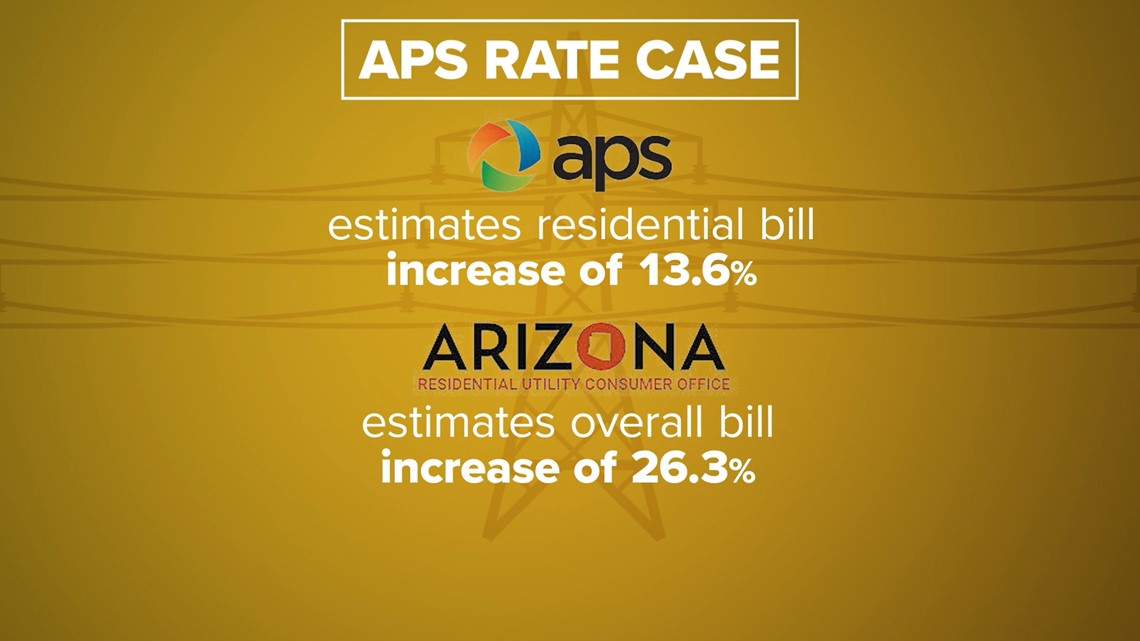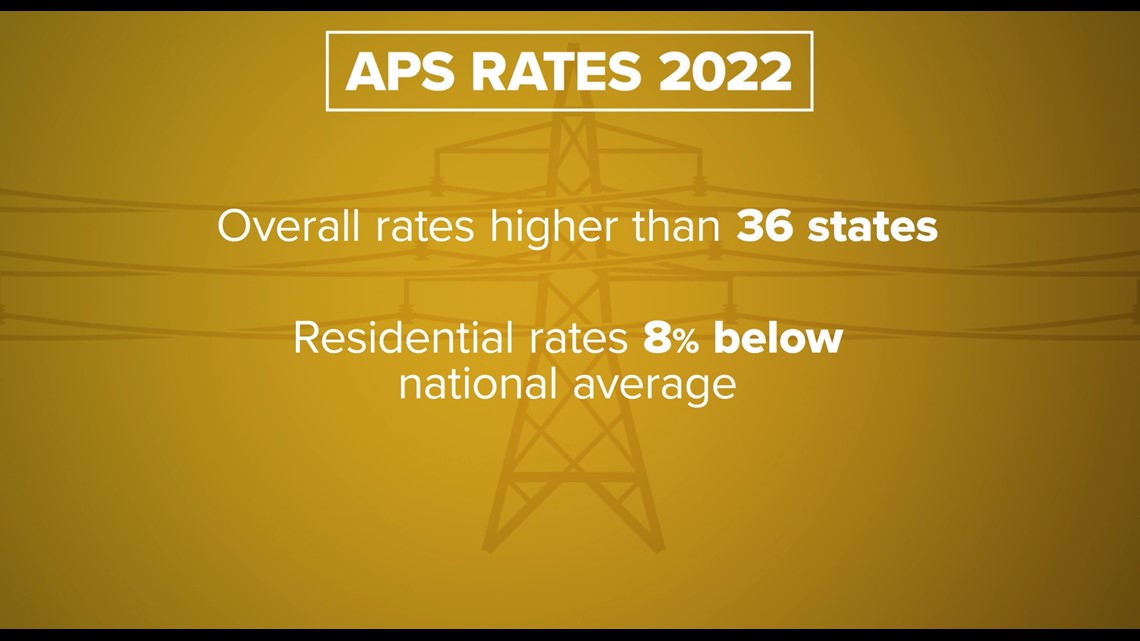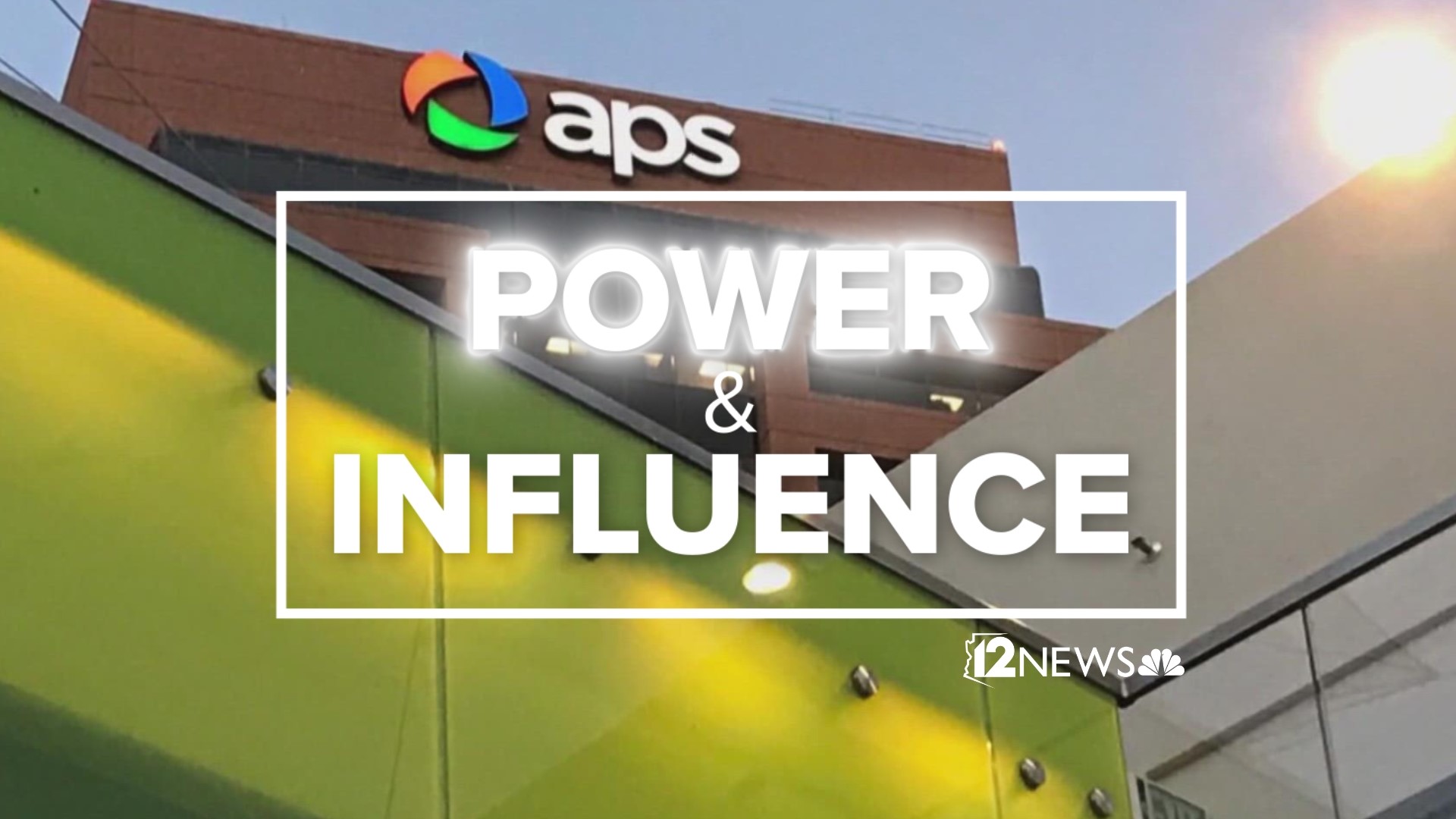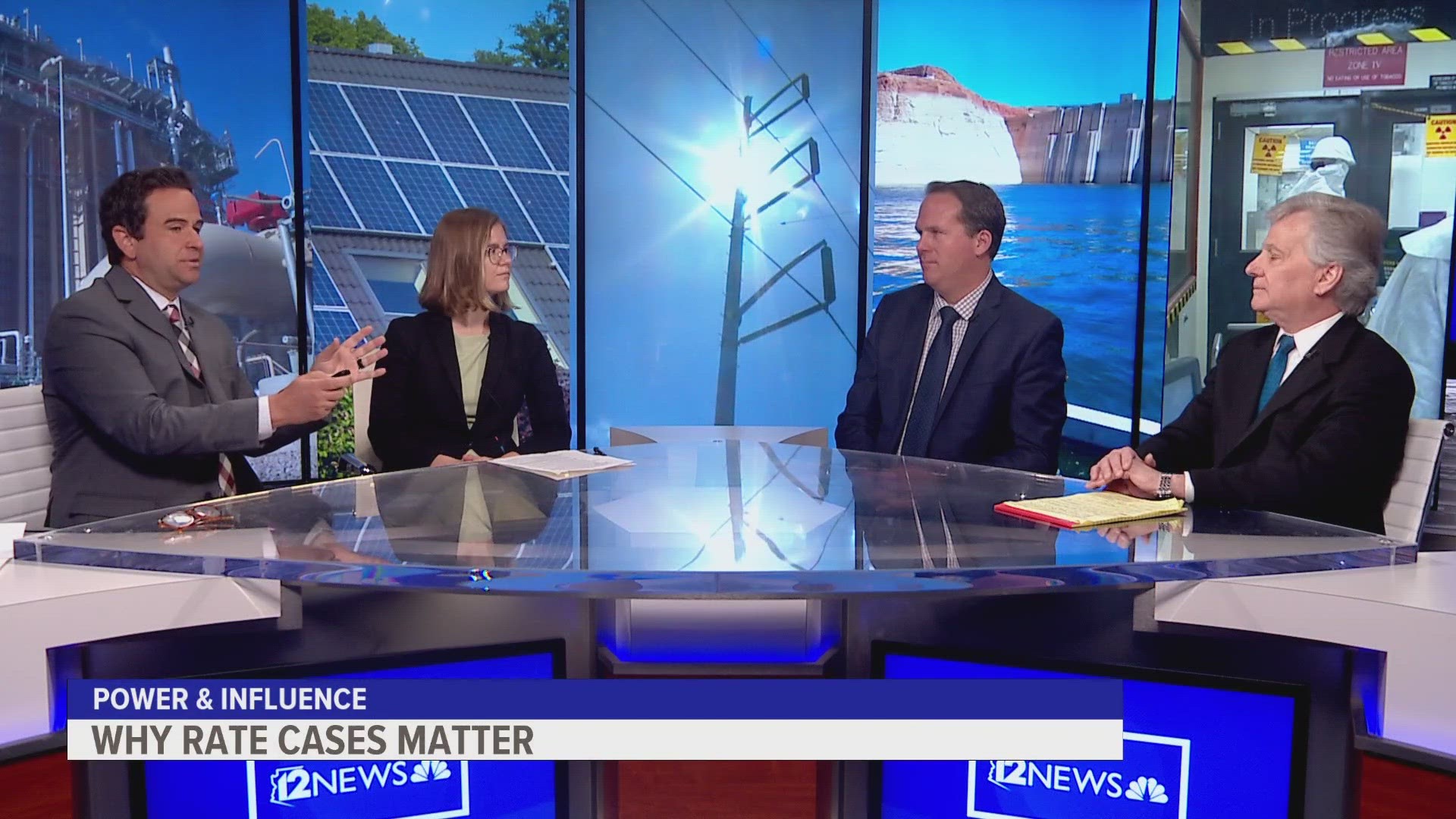PHOENIX — As public comment meetings begin next month involving proposed rates and rules for APS, there is disagreement about the actual impact the utility’s proposal would have on customers’ bills.
APS proposed a new rate formula to the Arizona Corporation Commission that the utility company said will increase its annual net revenue by $460 million, amounting to an average residential customer bill increase of 13.6%, according to an announcement by APS.
However, the actual net impact on consumers may be twice as high, according to the most recent estimate by the Residential Utility Consumer Office (RUCO), the agency that represents the interests of residential utility customers.
A February legal filing to the Commission by RUCO provides a “best estimate” of the actual impact to ratepayers to be a total increase of $895 million or 26.3%.
The estimates could evolve as the rate case moves forward this summer.
“We will continue to address this issue in the APS case, but at the moment, this is our position. We have not made any changes,” said Cynthia Zwick, acting Director of RUCO.


First public comment hearing is scheduled for June 1
Within the next three weeks, ACC Staff and RUCO are expected to file their testimonies in the case. The first public comment meeting is scheduled for June 1.
“The Commission has to dig into these details and actually parse all the competing information to get to the reality so that, in fact, customers are protected,” said Justin Olson, a former Corporation Commissioner who finished his term in January. Olson spoke to 12 News during a panel discussion Wednesday.
Bill Mundell, who served on the Commission from 1999 to 2009, said RUCO’s role in the upcoming hearings will be crucial.
“If RUCO does their job as established by statute then the public can feel pretty confident the hearing will be fair,” Mundell said.
Lessons learned from the 2017 rate case?
Consumers have a reason to be skeptical, given the results of the 2017 APS rate settlement.
“There was an initial recommendation (in 2017) by staff that the rates stay the same and RUCO recommended the rates go down,” Mundell said, who was not at the Commission at the time. “Then all of the sudden behind closed doors, the people of Arizona get a settlement where they learn they are getting a rate increase. That changed overnight.”
For his part, Olson was also not part of that settlement. Olson said he believes it will be important commissioners don’t try to add complexity to rates as they did in 2017.
“Are there big changes in the rate design? If so you are going to see that disparate impact,” Olson said.
A year after the rates went into effect, a consumer complaint alleged the actual bill impact to consumers was on average three times higher than what APS had described. A subsequent independent review in 2019 also concluded APS over-earned what they were authorized by the ACC. It stated APS did not take into account additional costs to customers and there was “a lack of full disclosure” to customers.


APS declined to comment on the independent review at the time of its release.
In 2021, APS entered a $24 million settlement with the Arizona Attorney General’s Office involving 230,000 customers allegedly financially harmed by APS practices. The AG determined APS did not adequately inform customers about their most economical rate plan and did not resolve a data error affecting customers.
Many factors to consider in a rate case
“These issues are not developed in a vacuum,” said Caryn Potter, Arizona representative for the Southwest Energy Efficiency Project (SWEEP), a nonprofit funded by government and supporters of alternative energy industries. SWEEP was an intervenor in the 2017 case and is again an intervenor in this current case. SWEEP did not sign off on the 2017 case.
“This (rate settlements) is all determined based on what is happening across the state economically, politically and based on other consumer issues as well,” Potter said.
Potter said SWEEP’s priority in the upcoming case is simple.
“To make sure consumers know what options are available to them and to reduce rates as much as possible,” Potter said.
APS proposing added support for limited-income customers
APS’s proposal also includes new time-of-use holidays, more support for limited-income customers, investments to the grid, and cost-competitive clean energy, APS said in a statement.
“The reliable electric service customers expect comes from maintaining and growing the grid, and APS invests more than $1.5 billion a year to do that,” APS told 12 News in writing. “Our rates today are based on costs from five years ago – a lot has changed since then - and it’s critical that we continue to strengthen our infrastructure to protect against extreme weather and also support Arizona’s growing demand for energy.”
The rate case hearings are scheduled to begin August 10th and are scheduled to last about a month.
>> Download the 12News app for the latest local breaking news straight to your phone.
Up to Speed
Catch up on the latest news and stories on our 12News YouTube playlist here.


